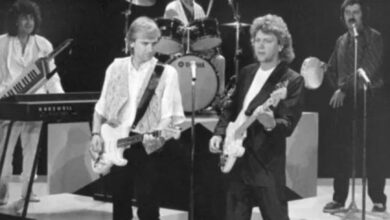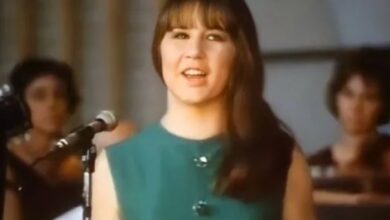This Performance Confirms Young People See Patsy’s Divine Talent, Unlike Most of Today’s Artists
Patsy Cline, born Virginia Patterson Hensley in Winchester, Virginia, on September 8, 1932, emerged as one of the most influential voices in country music history. Raised in a musical family, Cline’s early life was marked by a deep passion for singing, leading her to perform at local venues and on regional radio stations throughout her teenage years. Her distinctive contralto voice, characterized by its rich tone and emotive power, set her apart from her peers and laid the foundation for a career that would leave an indelible mark on the genre.
Cline’s breakthrough came in the late 1950s when she signed with Four Star Records, releasing a string of moderately successful singles. However, it was her move to Decca Records in 1960 that truly propelled her to stardom. Under the guidance of producer Owen Bradley, Cline refined her sound, blending traditional country with elements of pop and jazz to create a style uniquely her own. This collaboration with Bradley would prove instrumental in shaping her career and defining the sound of her most iconic recordings.
One such recording was “Crazy,” a song penned by the then-unknown Willie Nelson in 1961. Initially hesitant about the song’s unconventional phrasing, Cline was won over after hearing Nelson’s demo. Despite recovering from a serious car accident at the time of recording, which left her in physical pain, Cline’s rendition of “Crazy” showcased her exceptional vocal talent and emotional depth. The session at Bradley’s Quonset Hut Studio was a testament to her professionalism and dedication, as she poured her heart into delivering a performance that resonated with listeners on a profound level.
Released in October 1961, “Crazy” became a chart-topping hit, reaching number two on the Billboard Hot Country Singles chart and crossing over to the pop charts, where it peaked at number nine. The song’s success solidified Cline’s status as a crossover artist, appealing to audiences beyond the traditional country music fanbase. Its enduring popularity is evidenced by the countless covers it has inspired over the years, a testament to the song’s timeless appeal and Cline’s enduring influence.
Tragically, Patsy Cline’s life and career were cut short on March 5, 1963, when she died in a plane crash at the age of 30. The accident also claimed the lives of fellow country stars Cowboy Copas and Hawkshaw Hawkins. Despite her untimely death, Cline’s legacy continued to grow posthumously, fueled by the enduring popularity of songs like “Crazy” and “I Fall to Pieces,” another of her signature hits.
Beyond her musical accomplishments, Cline’s impact on country music is reflected in her pioneering efforts as a female artist in a predominantly male-dominated industry. Her ability to convey raw emotion through her voice, coupled with her fearless approach to blending genres, paved the way for future generations of women in country music. Inducted into the Country Music Hall of Fame in 1973, Cline’s influence remains palpable in the work of contemporary artists who cite her as a source of inspiration and admiration.
In conclusion, Patsy Cline’s career was characterized by a rare combination of talent, resilience, and artistic vision. Through songs like “Crazy,” she left an indelible mark on the music world, transcending genres and generations to become a timeless icon of country music. Her legacy continues to thrive through reissues of her recordings, tributes by fellow artists, and a lasting appreciation for her contributions to the cultural tapestry of American music.





